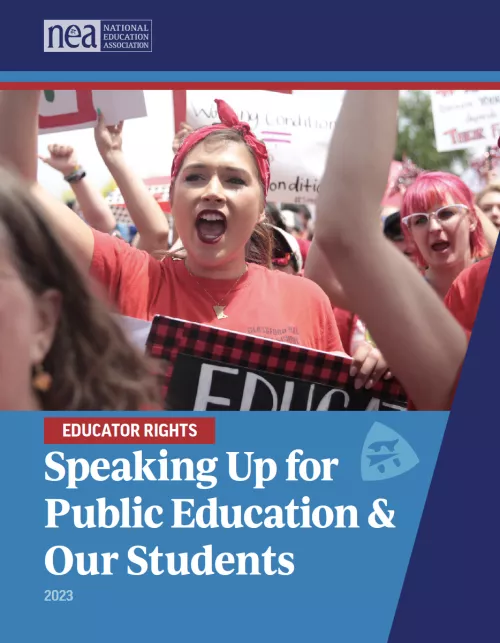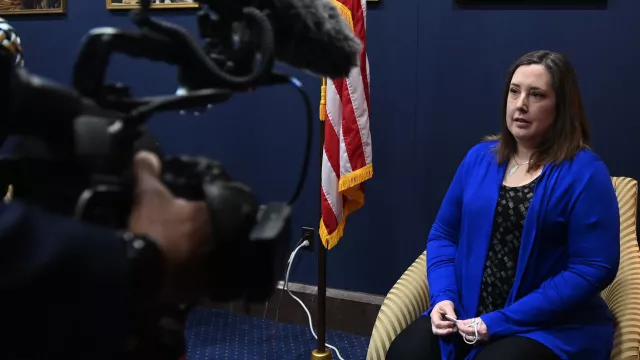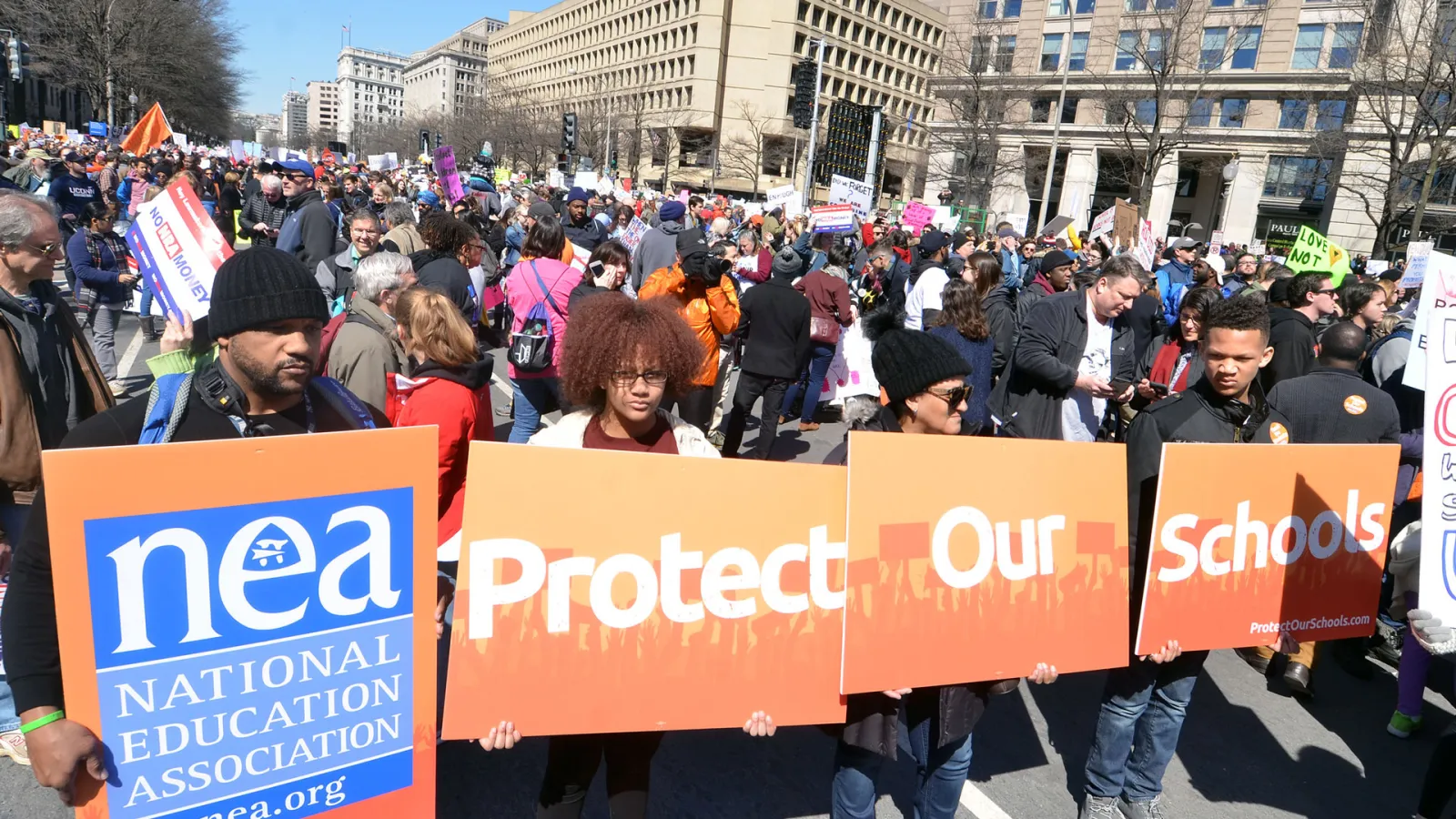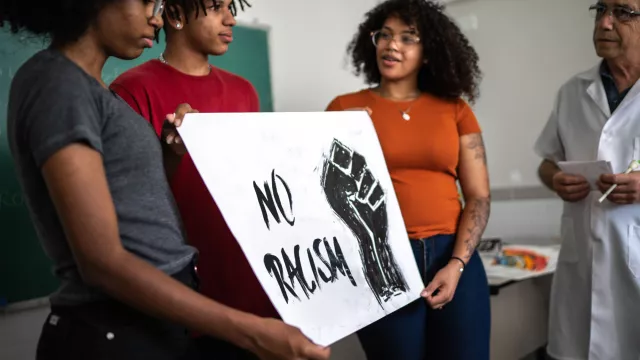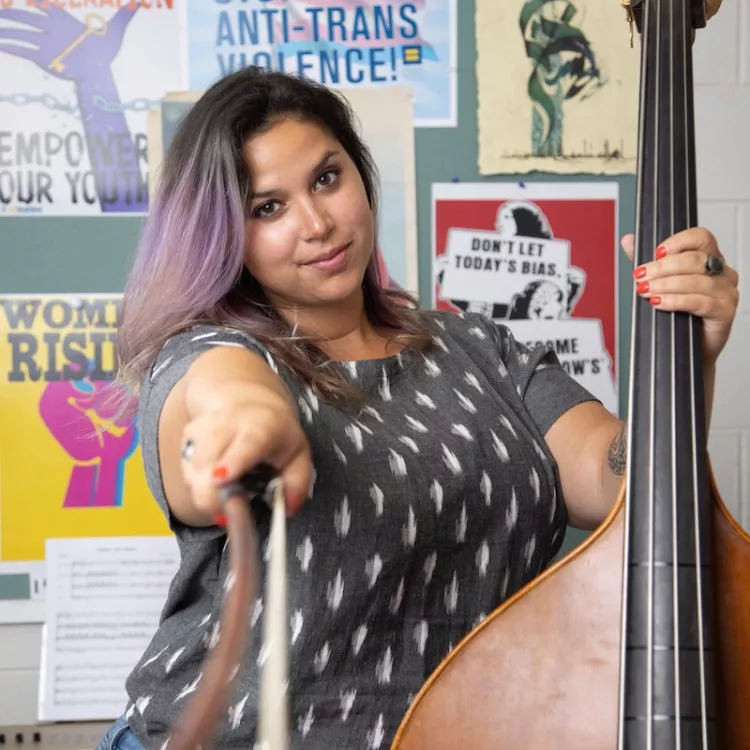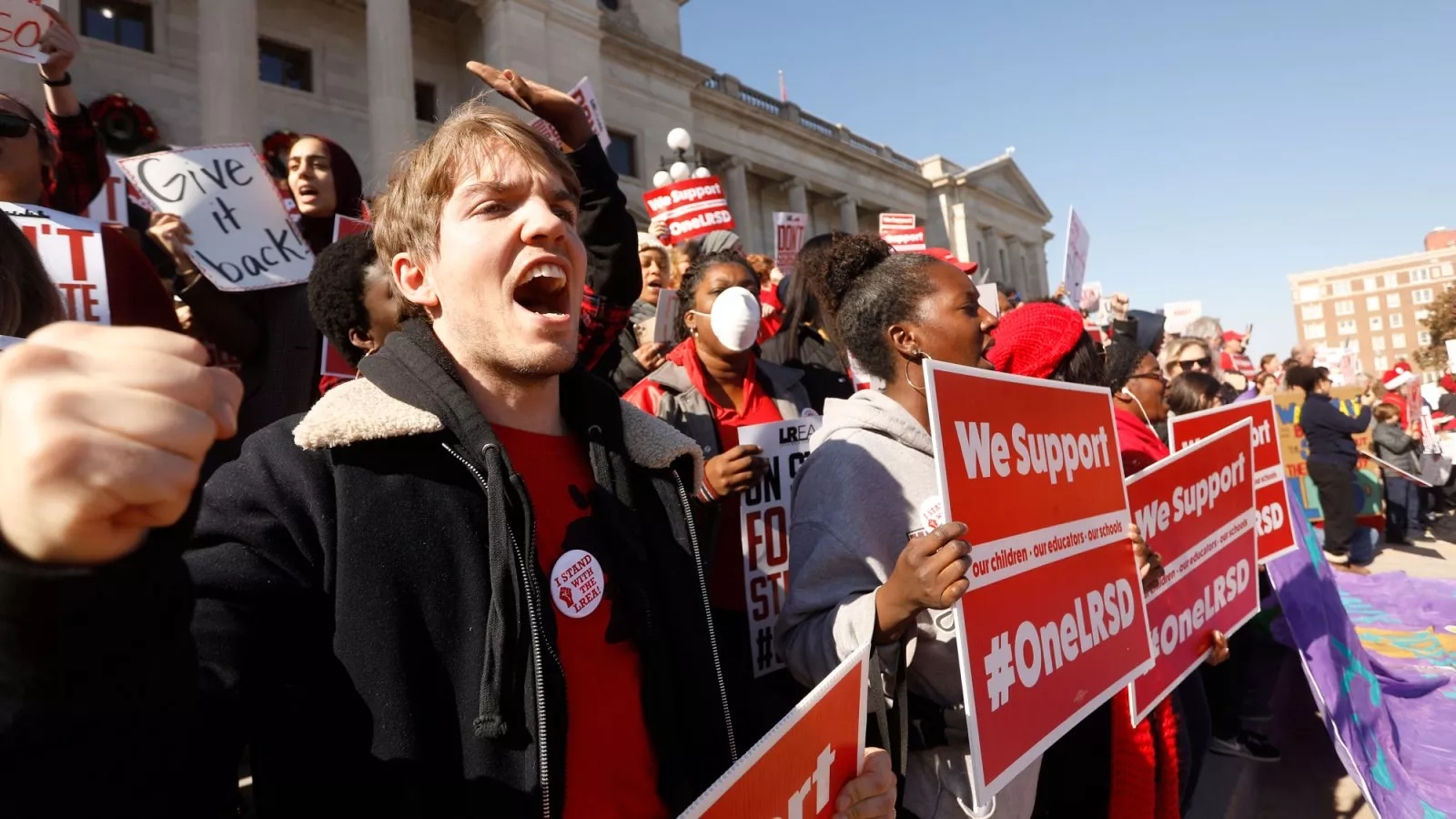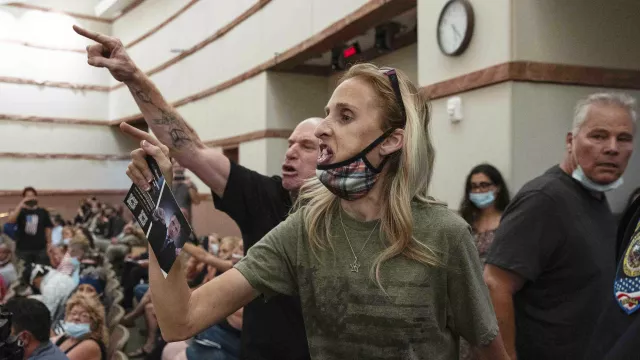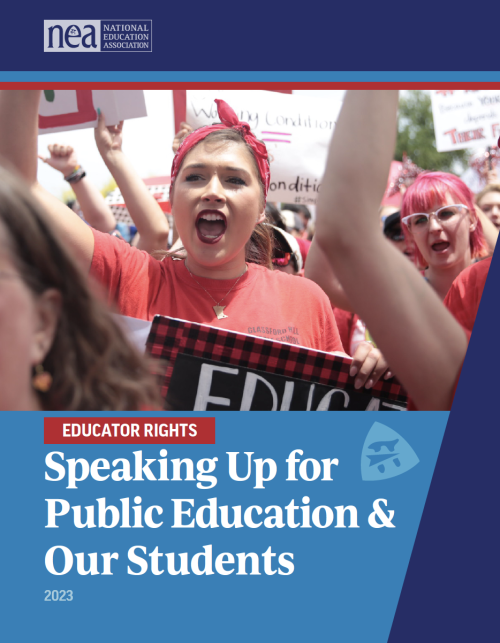Key Takeaways
- Feel confident about your rights as an activist.
- Understand the type of conduct that is not protected and can land you in trouble.
- Deal with public backlash related to advocacy efforts.
Introduction
This guide provides educators with an overview of your rights at school and outside of school to advocate to meet the needs of students and educators and to stand up for public education.
As always, this guide is intended to provide general information. After explaining the general protections that apply, the guide provides ideas and examples of best practices and ways to approach different situations.
For specific advice, you should always contact your local union or attorney.

GENERAL PROTECTIONS FOR EDUCATORS
Federal and state laws provide protections to citizens, employees, educators, and unionized workers.
Together, these protections allow educators to do their jobs without fear of being disciplined unfairly for advocating for students, reporting misconduct, teaching, or organizing to improve working conditions.
But these protections are limited, and only cover educators under certain circumstances.
General information on these protections is available here. More specific examples of how you can advocate within the bounds of these protections can be found later in this guide.
YOUR RIGHTS

The First Amendment

Reporting Wrongdoing

Teacher Tenure
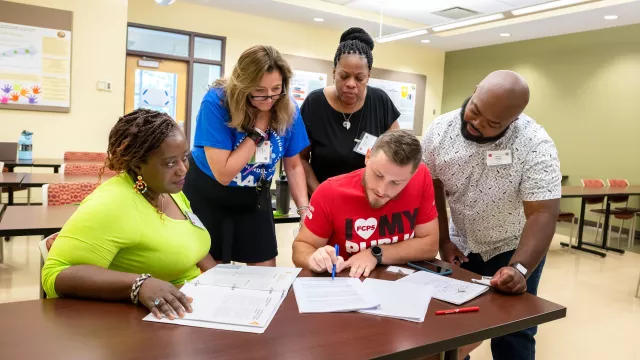
Union Activity & Speech

